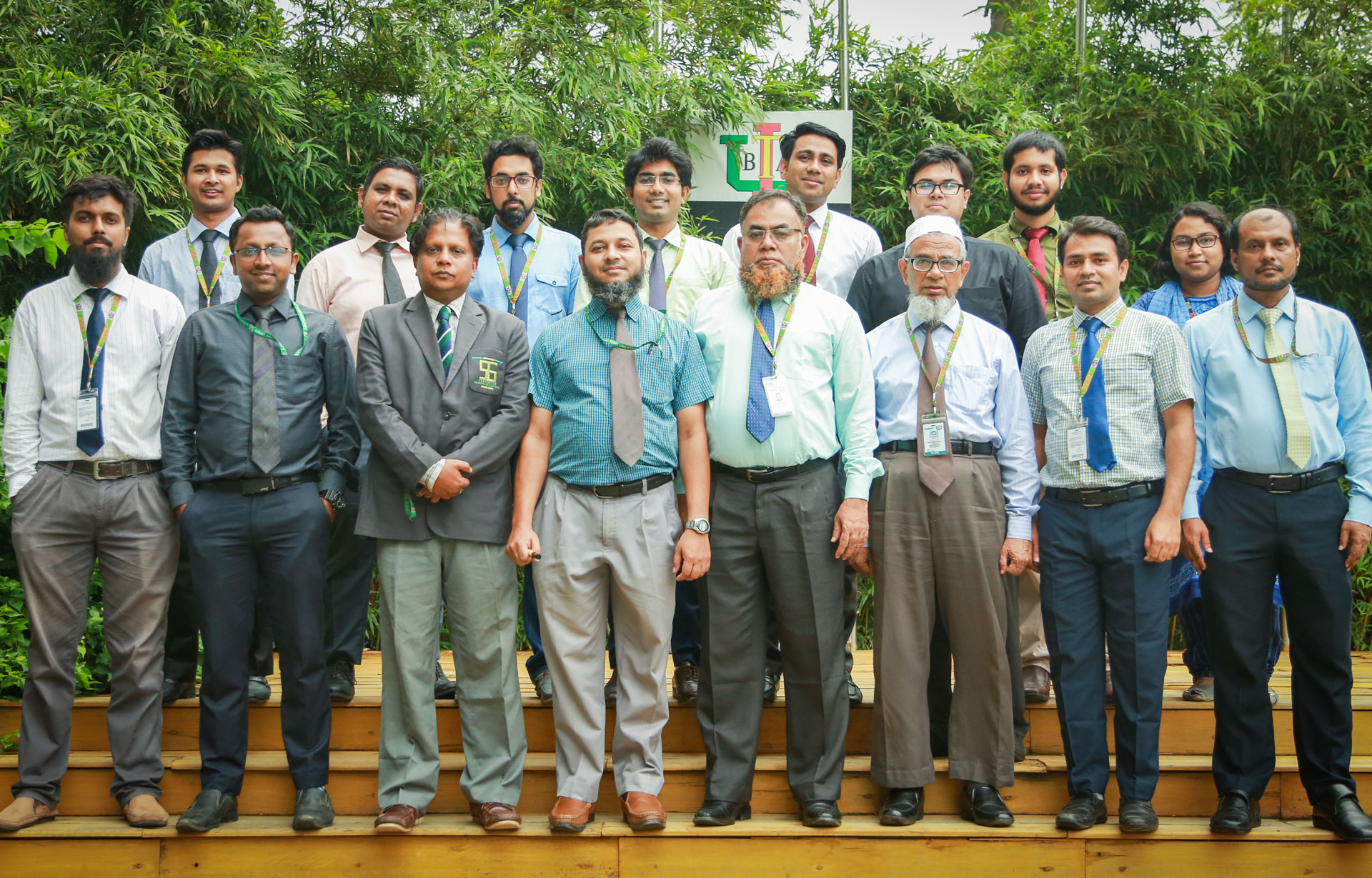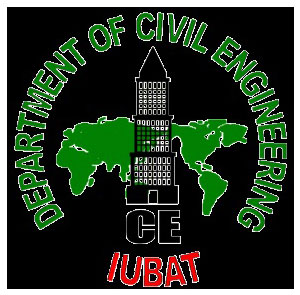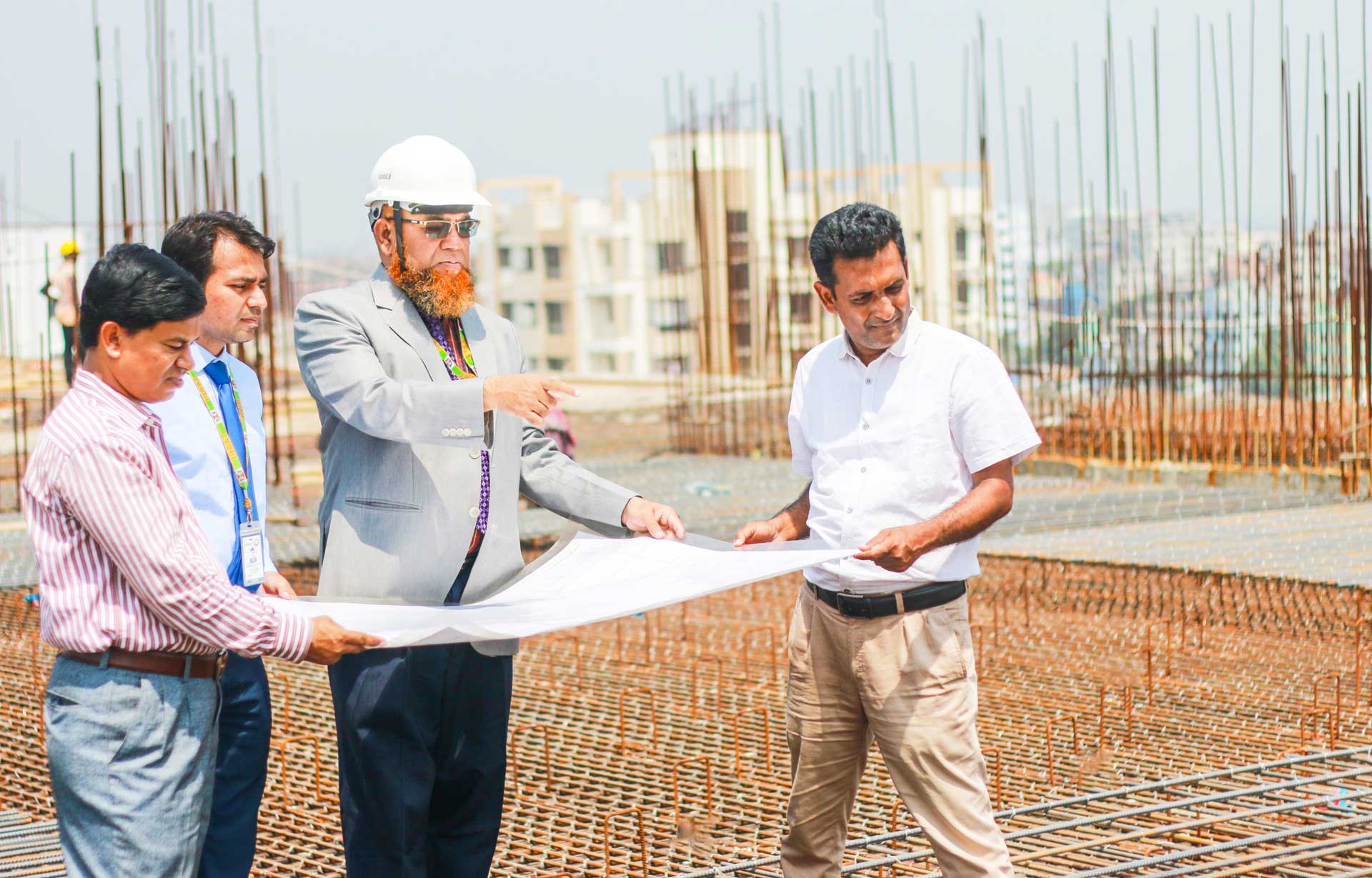The Department of Civil Engineering started their journey in the year of 1995. This is the first IEB accredited department of IUBAT. The Department is enriched with all full time highly qualified faculty members.
Furthermore, forty nine non-departmental faculties are giving support to the department for general subjects as well as some of the departmental subjects. The curriculum is designed to give the students general education background, foundation courses, exposure to other areas of engineering and concentration in civil engineering.
- The courses offered in the first year are designed to develop the students’ language, mathematical and reasoning abilities.
- The courses offered in the second year covered background courses of engineering and courses required to develop the knowledge about the need of the society and utilize these to fix personal goals.
- The courses offered in the third and fourth year are designed to expose students to different branches of engineering and concentrate on civil engineering.
OVERVIEW
Civil Engineering is the oldest and broadest of the traditional engineering professions. Civil engineers build the world’s infrastructure. In doing so, they quietly shape the history of nations around the world. Most people cannot imagine life without the many contributions of civil engineers to the public’s health, safety and standard of living. It is devoted to the improvement of the human Environment for the purposes of making our activities productive, safe, and enjoyable, while providing aesthetically pleasing surroundings. The civil engineer plans, designs, constructs and maintains physical works and facilities that are deemed essential to modern life. Civil engineering focuses on the infrastructure of the world which include Water works, Sewers, Dams, Power Plants, Transmission Towers/Lines, Railroads, Highways, Bridges, Tunnels, Irrigation Canals, River Navigation, Shipping Canals, Traffic Control, Mass Transit, Airport Runways, Terminals, Industrial Plant Buildings, Skyscrapers, etc. Among the important subdivisions of the field are Construction Engineering, Irrigation Engineering, Transportation Engineering, Soils and Foundation Engineering, Geodetic Engineering, Hydraulic Engineering, and Coastal and Ocean Engineering, Environmental Engineering, and City Planning. Only by exploring civil engineering’s influence in shaping the world we know today, can we creatively envision the progress of our tomorrows.
MISSION
To be a world leading center of education and innovative research in civil engineering.
VISION
To forefront excellence in academic, technology and human resource development though creativity.
PROGRAM
The Bachelor of Science in Civil Engineering (BSCE) program under the Department of Civil Engineering started its journey in the year of 1995. The aim of the program is to produce professional civil engineering graduates equipped with knowledge, skills and necessary techniques to meet the challenges of the civil engineering job requirements.
FACULTY MEMBERS
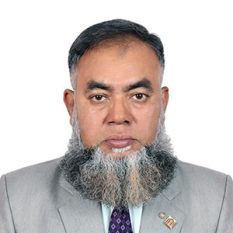
Dean CEAT, Professor & Chair, Dept of Civil Engineering
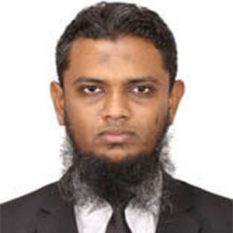
Dr. Md.Foisal Haque (PEng, SEng)
Associate Professor & Coordinator

Assistant Professor & Coordinator of the Master’s Program
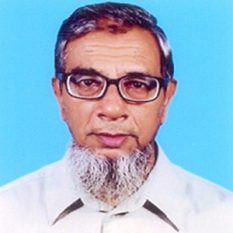
Professor
WHY CE AT IUBAT?
- Successful journey of 25 years.
- IEB accredited.
- Highly qualified and dedicated faculty members
- Job placement opportunities
- Modern and well equipped lab
STRENGHTS OF THE DEPARTMENT
(i) A well designed and rich curriculum
(ii) Strict monitoring of holding 100% of the classes as per class schedule
(iii) Highly qualified teachers
(iv) English is the only medium of communication
(v) Emphasis on Dress and Behavioral Code for grooming and encouraging students acquire skill of presentations
(vi)Well equipped laboratories
(vii) Continuous training for the faculty and staff
(viii) Use of advanced teaching methods utilizing multi-media facilities and power point presentation in every class
(ix) Real time internet connectivity facilities in class rooms along wing campus wide Wi-Fi facilities
(x) Presence of international faculty in the campus
(xi) Holding seminars and symposiums on regular basis which the students find interesting to attend
(xii) Use of moodle learning systems
